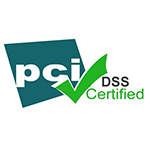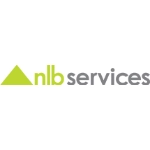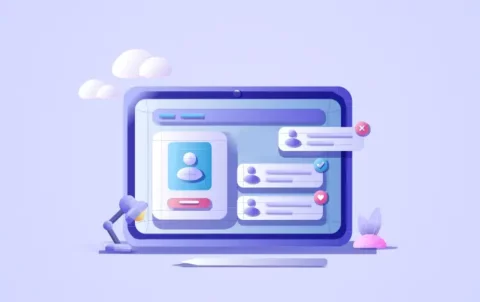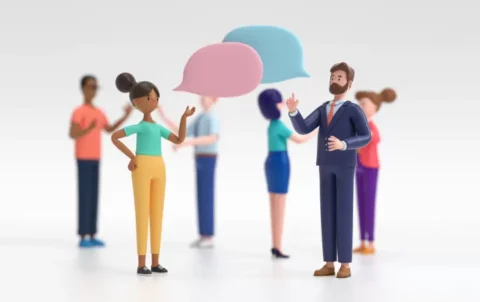© 2025 Next Level Business Services Inc. All Rights Reserved.
How to prepare for a job interview: Tips and tricks
By NLB Services
Content
- Researching the company and position
- Practicing common interview questions
- Practicing behavior based interview questions
- Reasons why preparing for an interview in advance is highly recommended
- Preparing your appearance and materials
- Strategies for managing nerves
- Conclusion
Got a job call? Great! Thinking of preparing for the same? Even better! Before you start preparing for your interview, let us understand the whys and what’s behind the interview preparation so that you have a clear motive that’ll help you achieve better results.
When you don’t prepare for an interview, you are setting yourself up for the first step of failure already. That too, even before going for the interview. Candidates come prepared for the job interview, so you are already a step behind them. Putting your efforts into the interview preparation will boost your confidence and increase your chances of getting hired. By following the below steps, you can get a better idea of how to prepare for an interview.
Researching the company and position
Research in-depth about the company through its website, social media pages, employee reviews, and other online sources. Research the company’s mission, vision, values, goals, types of products it offers and the types of clients it serves. Try to figure out some insight into its latest revenue, fundraising, future plans, and growth prospects. Mostly on any company’s website, you will find this information on the ‘About Us’ page. Whereas, job openings and employment-related information will be displayed on their ‘Careers’ page.
Then investors’ related information will be displayed on their “Investor Relations” page or media/news coverage page.
Practicing common interview questions
- Discuss the importance of practicing common interview questions
- Offer some tips for practicing, such as: preparing answers to common questions, practicing with a friend or mentor, and recording yourself to review your performance
- Explain how this practice can help you feel more confident and prepared for the actual interview
Every interview has a list of common questions irrespective of profile and company. Preparing your answers to common interview questions in advance can help you to ace your interview like a pro. Let’s look at the following questions the interviewer may ask you during a job interview:
Tell me about yourself/ Help me know you more
It is a common question interviewers may ask to learn about a candidate’s background. While responding to the “Tell me about yourself” question, start by stating your current company’s name and position. It will enable you to establish your career history and highlight the most significant achievements to the interviewer. Try using some positive words/adjectives to describe yourself with corresponding examples.
What are your biggest strengths and weaknesses?
Employers often inquire about your strengths and weaknesses to know you better and the areas you can greatly help them in and areas where you require some training and development. In the answer, you can mention your biggest technical and soft skills. While describing your weaknesses, co-relate with the steps you have taken to overcome the challenge and the steps you have taken to improve. It will enable you to add a positive component to a potentially damaging question.
Why should we hire you?
This question aims to define an explanation of why you are the best candidate for the position. Your response should emphasize your talents, expertise, and accomplishments. Narrate how your goals are aligned with those of the organization
Why do you want to work here?
The question “Why Do You Want to Work Here?” is often asked during interviews to gauge a candidate’s alignment with the company’s values, culture, and mission. Your response should convey your genuine interest in the organization, highlighting how your skills, goals, and values align with the company’s objectives. It’s an opportunity to showcase your enthusiasm for the role and demonstrate that you’ve done your research on the company, making you a suitable and motivated candidate.
What is your greatest achievement ?
The question is designed to assess your accomplishments and how you perceive success. In your response, you should share a significant achievement that is both relevant to the job and showcases your skills, determination, and problem-solving abilities. Emphasize the positive impact your achievement had on a project, team, or organization, highlighting the qualities that make you a valuable candidate. This question offers an opportunity to demonstrate your ability to set and achieve goals while illustrating your potential contributions to the prospective employer.
Why do you want to leave your current job?
When responding to “Why do you want to leave your current job“, it’s important to maintain a positive and professional tone. You should focus on reasons that highlight your career aspirations, such as seeking new challenges, career growth, a better work-life balance, or aligning more closely with your long-term goals. Avoid speaking negatively about your current employer or job, as this can raise red flags. Instead, emphasize how the new opportunity aligns with your career objectives and why you believe it’s a better fit for your skills and ambitions.
Practicing behavior based interview questions
Behavioral based interview questions give employers an insight into prospective candidates’ working styles and prior job experiences. Since behavioral questions call for detailed yet structured answers, one needs to be able to articulate themselves well. They are somewhat tricky to respond, its better to practice your responses with friends or mentors and receiving feedback from them to further refine and tweak your answers. For e.g. – interviewer can ask – Tell me about a time when you had to resolve a conflict within your team. How did you handle it, and what was the outcome?
Many times these questions are a part of final round of interview. The questions vary depending on the candidate’s profile and experience. Preparing for final interview doesn’t have to be hard. Candidates should take time to think about how they will respond so that they are not caught without an answer. In order to support their answer they should talk about their role/experience(s) and how they overcome challenges during their tenure.
Reasons why preparing for an interview in advance is highly recommended
It shows that you’re interested in the company and the vacancy
While you take your time out for interview preparation, it shows your dedication and interest in the position and company. Thereby, it creates a positive impact on the recruiter and increases your chances of getting hired.
It helps to align your skills and experiences with the company’s goals
Talking like an insider during the interview is a great way to acquire the job. For that, try to grab the necessary information as much as you can and connect your experiences and skills with the company’s goals and vision.
Preparing some common questions for the interview boosts your confidence and reduces stress
You are more likely to be stressed and underperform when you don’t prepare for something important like interviews. So preparing common questions for an interview helps you anticipate what to expect.
Preparing your appearance and materials
After practicing the mock interview test papers, do a thorough check of your mail id, in case the interviewer still needs to cancel the candidature. Then familiarize yourself with the location where you need to appear and leave home timely. Take all the essentials like, your resume, experience certificates, qualification certificates, etc. Choose a formal attire that you would be wearing for the interview. Ensure that the clothes are clean and wrinkle-free. Pay attention to grooming yourself and plan for a neat and clean look with well-cut hair and shaved or trimmed beard. For women, it should be taken as minimal makeup.
As you leave for the interview, if you are carrying all the soft copies of the document, then you should not forget to charge your laptop. Do not forget to clean the screen too.
Strategies for managing nerves
- Discuss common nervousness before an interview
- Offer some tips to calm your nerves, such as: practicing deep breathing or meditation, getting a good night’s sleep before the interview, and reminding yourself of your qualifications and experience
- Explain how this preparation can help you stay focused during the interview
One common reason why we get nervous before interviews is the fear of the unknown person at the other side of the table, and we never know the type of question we are going to face. Preparing for the most common questions asked during an interview (interlink it with the blog i’ve written recently) can go a long way in reducing nervousness. Before going to the interview, research the company, practice your responses to the most common interview questions, attempt a mock interview with a friend, and have your resume and notes ready.
Apart from this preparation, try the STOP method-
The STOP method is a mental technique that helps to overcome stressful situations. Following are the steps to the STOP technique:
- Focus on what you’re thinking and stop what you are doing.
- Take deep breaths, as many as you need.
- Observe both your body language and what is happening inside your body, and act accordingly.
- Observe your emotional thoughts in your mind and find out the reasons why you are feeling these things.
- Proceed to incorporate your observations into your actions.
The purpose of the STOP method is to slow down and become aware of what you’re doing and why those feelings are coming to you. It allows you to remember that you control your actions and thoughts.
Remind yourself that a job interview is a conversation between two different parties, it is not an interrogation. The interviewer is trying to figure out if you would be the best fit for the job role. It is also your chance to determine if the position, job location, and company would be a good fit for you.
Having cross-questions ready and being curious about the job can help the employer to know that you also are equally interested in exploring the job. During the interview, practice active listening, answer the questions patiently, and cross-question whenever required. Nodding and having a smiling face can also trick your mind into feeling happy and fulfilled. It will allow you to relax more during the interview.
Conclusion
The only way to get ahead of all the interview pitfalls is through thorough preparation in advance. As you prepare well for an interview, you put your best foot forward and reap the benefits of having more control over your performance rather than leaving it to chance and the interviewer.
Talent Solutions








